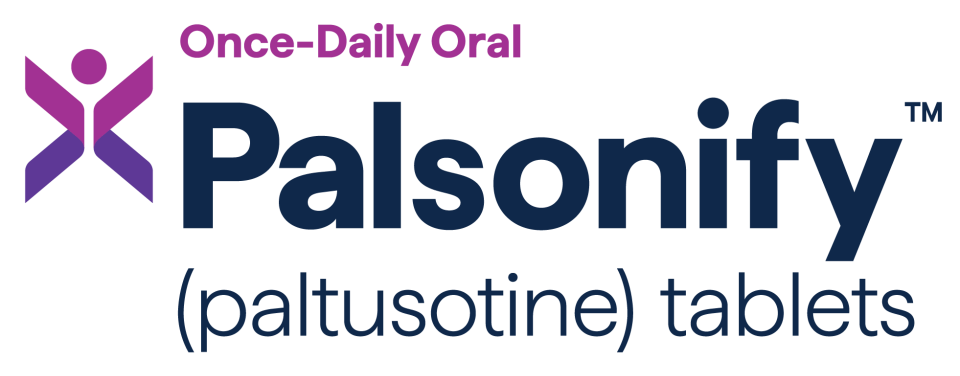ATUMELNANT
(ORAL ACTH
ANTAGONIST)
Adrenocorticotropic hormone (ACTH) acts through the melanocortin type 2 receptor (MC2R) that is exclusively expressed in the adrenal cortex. Despite the knowledge of ACTH’s pivotal role in the endocrine stress response for nearly a century, there has never been a potent, selective ACTH receptor antagonist. Atumelnant is the first investigational once-daily, oral MC2R antagonist that selectively blocks the activity of ACTH at the adrenal cortex. Atumelnant was designed to help patients combat the effects of over-secretion of ACTH.
Therapeutic areas
Congenital adrenal hyperplasia (CAH)
CAH encompasses a set of disorders caused by genetic mutations that result in impaired cortisol synthesis. This lack of cortisol leads to a breakdown of feedback mechanisms and results in persistently high levels of ACTH that, in turn, causes overstimulation of the adrenal cortex. The resulting adrenal hyperplasia and over-secretion of steroids (particularly androgens like A4) and steroid precursors can lead to a variety of adverse effects.
CAH patients require life-long supplementation with glucocorticoid steroids to prevent adrenal insufficiency and adrenal crisis. Many patients receive supraphysiologic doses of steroids to try and suppress elevated ACTH levels. Long-term treatment with high doses of glucocorticoids is frequenty associated with significant weight gain, cardiovascular issues, diabetes, and osteoporosis, among other serious medical problems.
Atumelnant works by preventing ACTH from activating its receptor on the MC2R. This blocks the downstream function of ACTH.
In the Phase 2 TouCAHn study, treatment with atumelnant resulted in substantial, rapid, and sustained reductions of key disease biomarkers, in addition to meaningful improvements in multiple CAH clinical signs and symptoms. Based on these results, a Phase 3 trial in adults (CALM-CAH) and a Phase 2/3 trial in pediatrics (BALANCE-CAH) have been initiated.
More on our research in CAH
ACTH-dependent Cushing’s syndrome
ACTH-dependent Cushing’s syndrome (ADCS) results from a pituitary tumor (or tumor in another part of the body as in ectopic ADCS) secretes excess ACTH that, in turn, causes the downstream synthesis and over-secretion of cortisol by the adrenal glands. Cortisol is the body’s main stress hormone, and excess amounts can cause significant increases in morbidity and mortality.
First-line treatment for ADCS is surgical resection of the ACTH-secreting tumor, with pharmaceutical intervention required in cases where surgery is not an option, surgery is not successful or the tumor recurs. While several pharmaceutical options exist to help control symptoms in these patients, significant unmet need exists because current treatment options often have serious side effects and tolerability issues, including cardiac issues (QTc prolongation), liver toxicity, low blood potassium, GI disturbances, nausea, dizziness, and headaches.
Atumelnant has demonstrated positive initial results in ADCS in a Phase 2a study. A proposed Phase 2/3 study design is upcoming, with patient enrollment expected in early 2026.
More on our research in ADCS
Our research
CAH
Rapid and Sustained Reduction of 11-Oxygenated Androgens in Adults With Classic Congenital Adrenal Hyperplasia Following Once-Daily Oral Atumelnant (CRN04894): Results From a 12-Week, Phase 2, Open-Label Study
Nicole Reisch, MD et. Al.
Once Daily Oral Atumelnant (CRN04894) Induces Rapid and Profound Reductions of Androstenedione and 17-hydroxyprogesterone in Participants with Classical Congenital Adrenal Hyperplasia: Initial Results From a 12-Week, Phase 2, Open-Label Study (2024)
Richard J. Auchus, MD, PhD, Peter J. Trainer, MD, Kathryn Jean Lucas, MD, et al.
Reductions in Adrenal Volume in Patients With Congenital Adrenal Hyperplasia Receiving Once-Daily Oral Atumelnant (CRN04894): Interim Results From a 12-Week, Phase 2, Open-Label Study
Tania A.S.S. Bachega, MD, PhD et. Al.
ACTH-Dependent Cushing Syndrome
Atumelnant (CRN04894) Induces Rapid and Sustained Reductions in Serum and Urine Cortisol in Patients With ACTH-Dependent Cushing Syndrome During a Phase 1b/2a, Single Center, 10-Day, Inpatient, Open-Label Study (2024)
Henrik Elenius, Raven McGlotten, Casey Moore, et al.
Waking Salivary 11-Hydroxyandrostenedione and Cortisone as a Novel Non-invasive Test for Adrenal Insufficiency (2023)
Alejandro Ayala, Carl LaCerte, Rosa Luo, et al.
CRN04894 an oral, nonpeptide ACTH receptor antagonist reverses ACTH-stimulated glucocorticoid secretion in rodents and humans (2022)
Peter J. Trainer, Melissa Fowler, Alan Krasner, et al.
Inhibition of Basal and ACTH-Stimulated Cortisol Secretion in Humans Using an Oral, Nonpeptide ACTH Antagonist (CRN04894) (2022)
Alan Krasner, Christine Ferrara-Cook, Rosa Luo, et al.
CRN04894: Phase 1 Multiple Ascending Dose (MAD) Preliminary Results (2022)
Company Presentation
CRN04894: First In Human Single Ascending Dose Preliminary Results (2021)
Company Presentation

Exploring new frontiers with our science to expand patient reach
Our in-house R&D team of proven drug hunters develops transformative novel molecules with a focus on the endocrine system and G-protein coupled receptors. Our pipeline is purposefully created to deliver innovative therapies.
Join us on our mission to redefine the future of endocrinology.
View open positions
